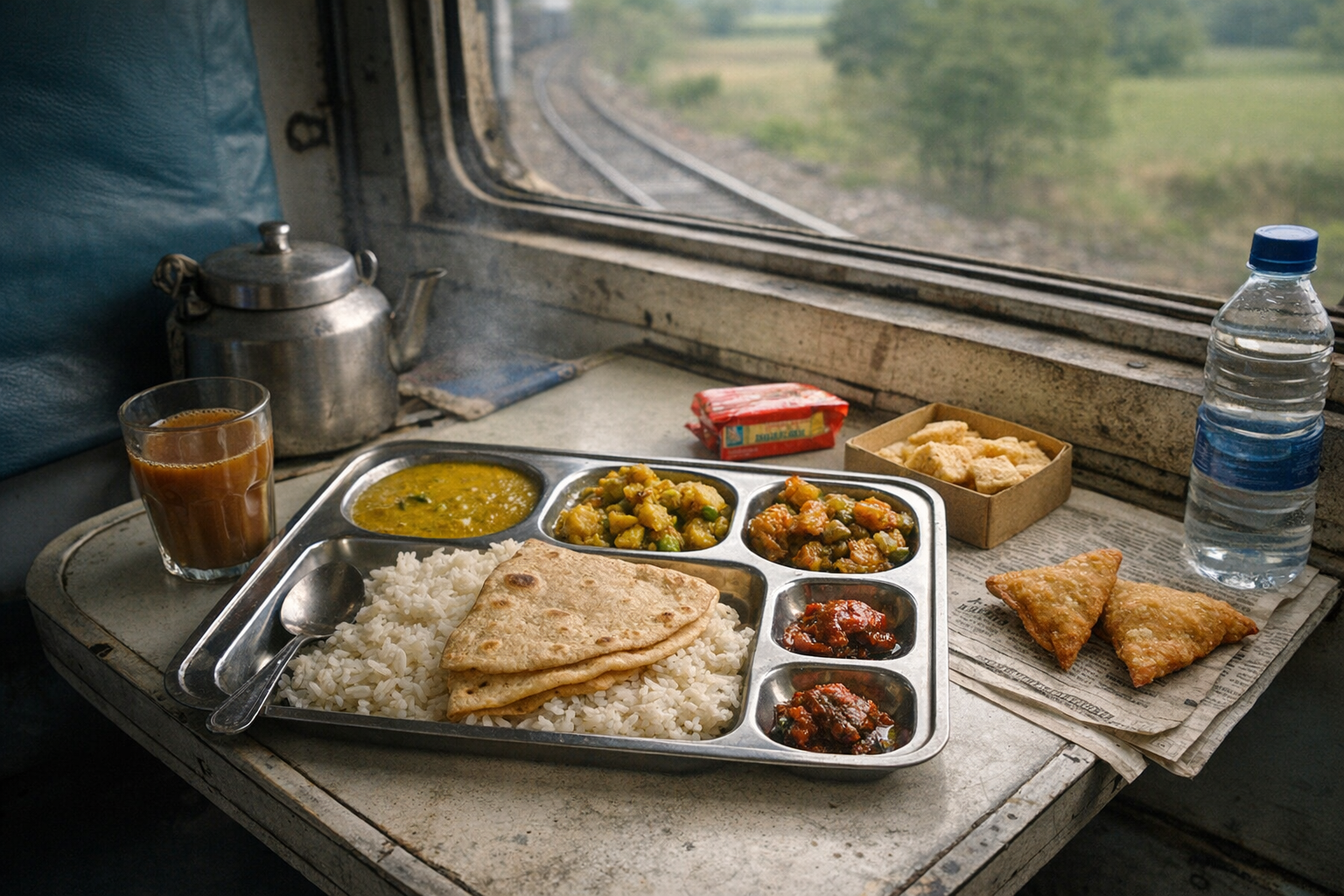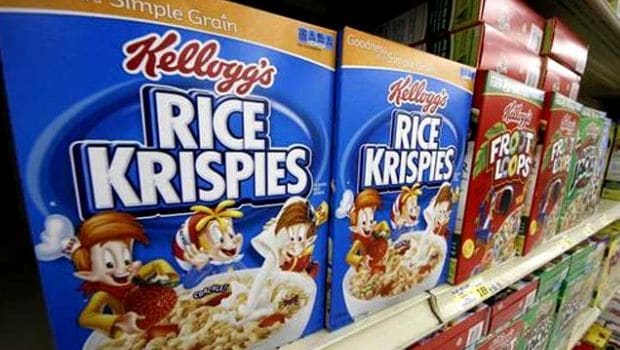On its website, Kellogg's touted a distinguished-sounding "Breakfast Council" of "independent experts" who helped guide its nutritional efforts.Nowhere did it say this: The maker of Froot Loops and Frosted Flakes paid the experts and fed them talking points, according to a copy of a contract and emails obtained by The Associated Press.The company paid the experts an average of $13,000 a year, prohibited them from offering media services for products "competitive or negative to cereal" and required them to engage in "nutrition influencer outreach" on social media or with colleagues, and report back on their efforts.
"I'm still feeling great from my bowl of cereal & milk this morning! Mini-Wheats are my fave," a council member posted during a Twitter chat with Kellogg about the benefits of cereal. Kellogg's introduced the dietitian as a "Breakfast Council Member."Without noting her relationship with Kellogg's, another council member and dietitian chimed in to say Mini-Wheats were her favorite, too. She included a photo of Frosted Mini-Wheats.For Kellogg's, the breakfast council — in existence between 2011 and this year — deftly blurred the lines between cereal promotion and impartial nutrition guidance. The company used the council to teach a continuing education class for dietitians, publish an academic paper on breakfast, and try to influence the government's dietary guidelines.The Kellogg's Breakfast Council included a professor of nutrition, a pediatrician and dietitians.Kellogg's said the council's activities were clearly sponsored.Yoni Freedhoff, an obesity expert at the University of Ottawa who writes about industry influence in nutrition, said he did not believe it was clear to the public that the council members were compensated, especially since Kellogg's described them as "independent.""It's not an automatic leap. I don't think people think about these conflicts that deeply," he said.Dayle Hayes, a dietitian who participated in the Twitter chat in 2014, said in an email that she prides herself on her ethics and transparency, and that her disclosure practices have changed with evolving standards. Based on current standards, she said she would include the word "ad" in tweets referencing Kellogg's products. She said she did not share any information without appropriate disclosures.Sylvia Klinger, the dietitian who shared the photo of Mini-Wheats, did not respond to requests for comment.Kellogg's Co. said it used the council for academic insight and guidance. It said the experts contributed to most the materials they shared, and that they disclosed their affiliation in public engagements.Still, the company said it could see how its description of the experts as "independent" could create confusion. It later told the AP it had been reviewing its nutrition work, and decided not to continue the council. The breakfast council page is no longer online."ARE THOSE REGULAR FRITOS?"Kellogg's said on its website that the breakfast council helped guide the company. But it wasn't always clear who was providing the guidance.When Kellogg's sent the council research it commissioned, Hayes and Klinger expressed enthusiasm and requested language to share the information."Would love Tweets with URLS," Hayes wrote. Hayes and Klinger posted the lines Kellogg's provided verbatim. Hayes included the word "advisor," while Klinger included the word "client."Kellogg's also supplied the experts with a "toolkit" of tweets for a promotional event in New York, where a costumed Tony the Tiger character mingled with guests. When the council members received an email from someone they did not know criticizing their work with Kellogg's, the company suggested a response for that, too."I appreciate and share you(r) interest in the health of our children," the suggestion read. "It's for this very reason that I work with Kellogg's." The experts decided not to respond.The breakfast council was also a way to patrol for naysayers. After an advocacy group issued a report criticizing sugary cereals, Sarah Woodside, a Kellogg's employee, sent the council an email explaining why it was unfair and asked them to alert her if they noticed any discussions about it.Disclosures by the council could be confusing. When two of the experts taught a class for dietitians on the "science behind breakfast," an introduction said they were members of Kellogg's Breakfast Council, then said they had no conflicts of interest. It said Kellogg's funded the class, but had no input into its content.Critics also say words such as "advisor" can leave the impression that a health professional simply provides expertise to the company, rather than communicates publicly as part of a financial arrangement.Marion Nestle, a professor of nutrition at New York University, said health experts usually have good intentions when working with companies, and may not realize they're being used for their credibility.It isn't unusual for companies to enlist dietitians.Coca-Cola has paid health experts who wrote columns that casually mention a mini-soda as a snack idea. Disclosures at the bottom said the author is a "consultant" for food and beverage companies, "including Coca-Cola." Last year, the Atlanta-based beverage maker said it was halting such work as it reassessed its health efforts.Jessica Levinson, a dietitian who has appeared in TV news segments for Coke and PepsiCo's Frito-Lay, told the AP that producers were told if her healthy eating tips were sponsored. Yet the disclosures weren't always shared with viewers.In a segment on NBC Baltimore on "dos and don'ts" for holiday parties in 2009, Levinson presented bags of Fritos with dip — as an example of a "do.""Are those regular Fritos?" asked the reporter, indicating her surprise."KEY MESSAGES"One of the breakfast council's most notable achievements was publishing a paper defining a "quality breakfast" in a nutrition journal. Kellogg's touted the paper in its newsletter as being written by "our independent nutrition experts." Dietitians could earn continuing education credits from the publisher for taking a quiz about the paper.Kellogg's didn't describe its own role in overseeing editing and providing feedback, such as asking for the removal of a line saying a recommendation that added sugar be limited to 25 percent of calories might be "too high."The company said in a statement that its involvement should have been clear since the paper was a supplement. It noted an acknowledgement at the end of the paper that said the initial draft was written by an agency that represents Kellogg's.A funding disclosure said the paper was supported by an "unrestricted educational grant" from Kellogg's.The Journal of the Academy of Nutrition and Dietetics said editorial standards for supplements are the same as for regular articles. As with those articles, the paper underwent peer review, and an editor suggested reducing or eliminating the detailed discussion of cereal, especially since the sponsor was a cereal company.To amplify the paper, Kellogg's planned to reference it in comments submitted to the government for its updated dietary guidelines, according to emails obtained through a records request with Louisiana State University, where one of the breakfast council members is a professor.Kellogg's also sent the council a plan with "Key Messages" to promote the paper. One of them: "A variety of Kellogg's products and tools make it easier to enjoy a quality breakfast."
(This story has not been edited by NDTV staff and is auto-generated from a syndicated feed.)
"I'm still feeling great from my bowl of cereal & milk this morning! Mini-Wheats are my fave," a council member posted during a Twitter chat with Kellogg about the benefits of cereal. Kellogg's introduced the dietitian as a "Breakfast Council Member."Without noting her relationship with Kellogg's, another council member and dietitian chimed in to say Mini-Wheats were her favorite, too. She included a photo of Frosted Mini-Wheats.For Kellogg's, the breakfast council — in existence between 2011 and this year — deftly blurred the lines between cereal promotion and impartial nutrition guidance. The company used the council to teach a continuing education class for dietitians, publish an academic paper on breakfast, and try to influence the government's dietary guidelines.The Kellogg's Breakfast Council included a professor of nutrition, a pediatrician and dietitians.Kellogg's said the council's activities were clearly sponsored.Yoni Freedhoff, an obesity expert at the University of Ottawa who writes about industry influence in nutrition, said he did not believe it was clear to the public that the council members were compensated, especially since Kellogg's described them as "independent.""It's not an automatic leap. I don't think people think about these conflicts that deeply," he said.Dayle Hayes, a dietitian who participated in the Twitter chat in 2014, said in an email that she prides herself on her ethics and transparency, and that her disclosure practices have changed with evolving standards. Based on current standards, she said she would include the word "ad" in tweets referencing Kellogg's products. She said she did not share any information without appropriate disclosures.Sylvia Klinger, the dietitian who shared the photo of Mini-Wheats, did not respond to requests for comment.Kellogg's Co. said it used the council for academic insight and guidance. It said the experts contributed to most the materials they shared, and that they disclosed their affiliation in public engagements.Still, the company said it could see how its description of the experts as "independent" could create confusion. It later told the AP it had been reviewing its nutrition work, and decided not to continue the council. The breakfast council page is no longer online."ARE THOSE REGULAR FRITOS?"Kellogg's said on its website that the breakfast council helped guide the company. But it wasn't always clear who was providing the guidance.When Kellogg's sent the council research it commissioned, Hayes and Klinger expressed enthusiasm and requested language to share the information."Would love Tweets with URLS," Hayes wrote. Hayes and Klinger posted the lines Kellogg's provided verbatim. Hayes included the word "advisor," while Klinger included the word "client."Kellogg's also supplied the experts with a "toolkit" of tweets for a promotional event in New York, where a costumed Tony the Tiger character mingled with guests. When the council members received an email from someone they did not know criticizing their work with Kellogg's, the company suggested a response for that, too."I appreciate and share you(r) interest in the health of our children," the suggestion read. "It's for this very reason that I work with Kellogg's." The experts decided not to respond.The breakfast council was also a way to patrol for naysayers. After an advocacy group issued a report criticizing sugary cereals, Sarah Woodside, a Kellogg's employee, sent the council an email explaining why it was unfair and asked them to alert her if they noticed any discussions about it.Disclosures by the council could be confusing. When two of the experts taught a class for dietitians on the "science behind breakfast," an introduction said they were members of Kellogg's Breakfast Council, then said they had no conflicts of interest. It said Kellogg's funded the class, but had no input into its content.Critics also say words such as "advisor" can leave the impression that a health professional simply provides expertise to the company, rather than communicates publicly as part of a financial arrangement.Marion Nestle, a professor of nutrition at New York University, said health experts usually have good intentions when working with companies, and may not realize they're being used for their credibility.It isn't unusual for companies to enlist dietitians.Coca-Cola has paid health experts who wrote columns that casually mention a mini-soda as a snack idea. Disclosures at the bottom said the author is a "consultant" for food and beverage companies, "including Coca-Cola." Last year, the Atlanta-based beverage maker said it was halting such work as it reassessed its health efforts.Jessica Levinson, a dietitian who has appeared in TV news segments for Coke and PepsiCo's Frito-Lay, told the AP that producers were told if her healthy eating tips were sponsored. Yet the disclosures weren't always shared with viewers.In a segment on NBC Baltimore on "dos and don'ts" for holiday parties in 2009, Levinson presented bags of Fritos with dip — as an example of a "do.""Are those regular Fritos?" asked the reporter, indicating her surprise."KEY MESSAGES"One of the breakfast council's most notable achievements was publishing a paper defining a "quality breakfast" in a nutrition journal. Kellogg's touted the paper in its newsletter as being written by "our independent nutrition experts." Dietitians could earn continuing education credits from the publisher for taking a quiz about the paper.Kellogg's didn't describe its own role in overseeing editing and providing feedback, such as asking for the removal of a line saying a recommendation that added sugar be limited to 25 percent of calories might be "too high."The company said in a statement that its involvement should have been clear since the paper was a supplement. It noted an acknowledgement at the end of the paper that said the initial draft was written by an agency that represents Kellogg's.A funding disclosure said the paper was supported by an "unrestricted educational grant" from Kellogg's.The Journal of the Academy of Nutrition and Dietetics said editorial standards for supplements are the same as for regular articles. As with those articles, the paper underwent peer review, and an editor suggested reducing or eliminating the detailed discussion of cereal, especially since the sponsor was a cereal company.To amplify the paper, Kellogg's planned to reference it in comments submitted to the government for its updated dietary guidelines, according to emails obtained through a records request with Louisiana State University, where one of the breakfast council members is a professor.Kellogg's also sent the council a plan with "Key Messages" to promote the paper. One of them: "A variety of Kellogg's products and tools make it easier to enjoy a quality breakfast."
(This story has not been edited by NDTV staff and is auto-generated from a syndicated feed.)
Advertisement







